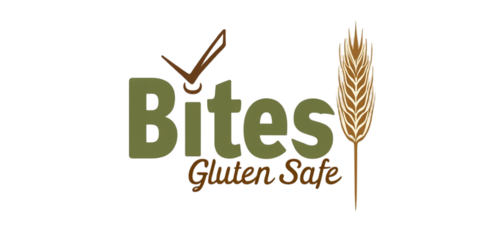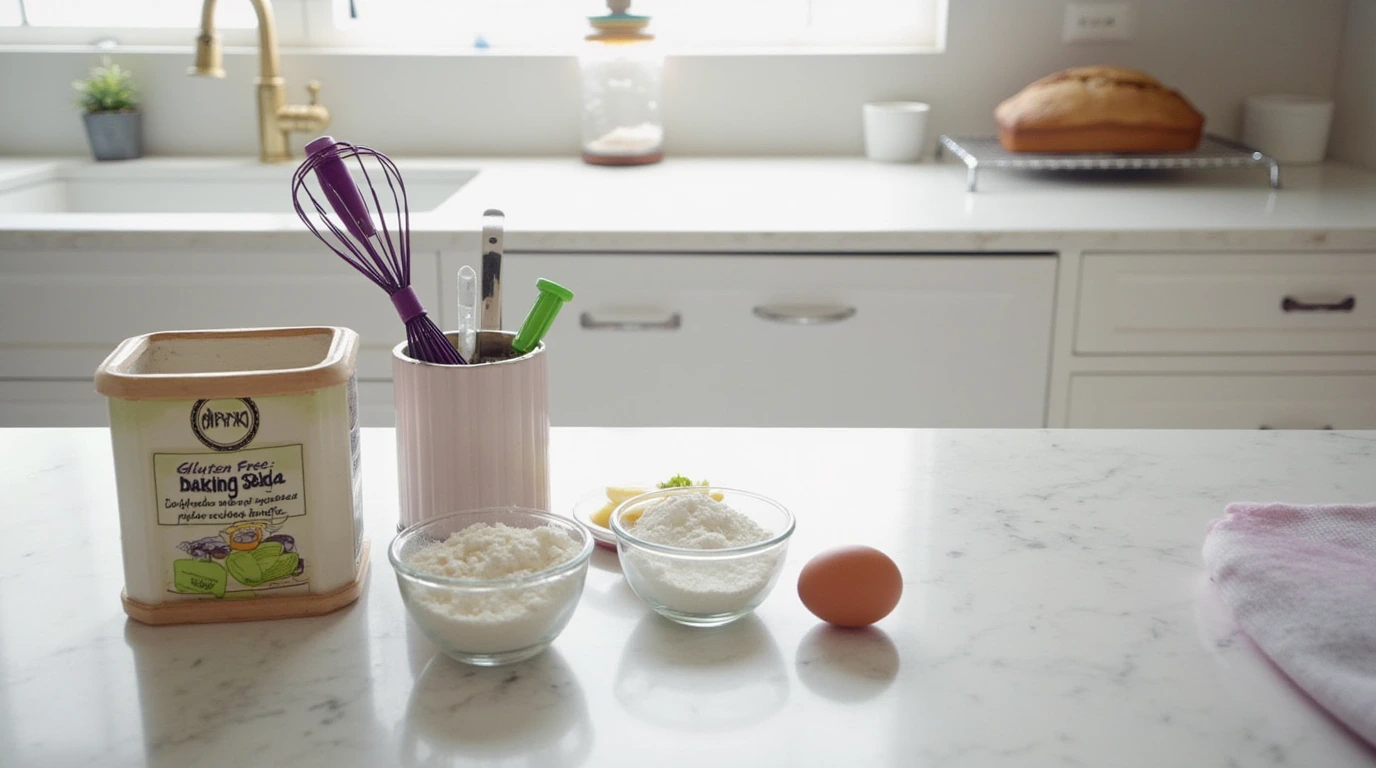Baking soda is a staple ingredient in many households, widely used in cooking, baking, cleaning, and even personal care. However, for individuals with gluten sensitivities or celiac disease, a common concern is whether baking soda is safe for consumption. The good news is that pure baking soda is naturally gluten free. However, like many ingredients, it’s essential to ensure it hasn’t been exposed to cross-contamination during manufacturing or packaging.
In this guide, we’ll explore everything you need to know about baking soda, its status, and its role in gluten free baking. For more clarity about gluten free leavening agents, you can also check out is baking powder gluten free?, which explains how similar ingredients compare.
What Is Baking Soda?
Baking soda, chemically known as sodium bicarbonate (NaHCO₃), is a naturally occurring compound. It’s a white, crystalline powder with versatile uses:
- In Baking: Baking soda is a leavening agent, meaning it helps dough or batter rise by releasing carbon dioxide gas when mixed with an acid (like vinegar or lemon juice) and moisture.
- For Cleaning: It’s a natural abrasive and deodorizer, often used to clean surfaces or freshen spaces.
- In Personal Care: Baking soda is commonly found in toothpaste, deodorants, and DIY skincare remedies.
Is Baking Soda Naturally Gluten Free?
Yes, baking soda is naturally gluten free. Its pure chemical structure ensures that it does not come from any gluten-containing grains or ingredients. Here are some key points to understand its gluten free status:
- Pure Composition: Baking soda is not derived from wheat, barley, rye, or other gluten-containing grains. Instead, it is either mined from the earth or produced through a chemical process.
- Risk of Cross-Contamination: While baking soda itself is gluten free, it can sometimes come into contact with gluten during manufacturing or packaging. To ensure safety, look for brands that specifically label their products as gluten free.
If you’re looking to incorporate baking soda into your gluten free recipes, consider trusted sources for gluten free baking ingredients, like those highlighted in gluten free baking recipes.
Food Grade vs. Cleaning Grade Baking Soda
Not all baking soda is intended for consumption. Here’s the difference between food grade and cleaning grade baking soda:
1. Food Grade Baking Soda
- Definition: Food grade baking soda is safe for consumption and specifically manufactured for culinary use.
- Usage: It’s used in baking recipes, neutralizing odors in food, and even certain food preservation processes.
- Labels to Look For: Products labeled as food grade or certified gluten free ensure safe consumption.
2. Cleaning Grade Baking Soda
- Definition: Cleaning grade baking soda is meant for household cleaning and deodorizing purposes.
- Usage: It’s used for scrubbing surfaces, freshening carpets, or deodorizing refrigerators, but it is not processed for consumption.
- Important Note: Cleaning grade baking soda may not meet the standards for food safety and can pose health risks if ingested.
When shopping for baking soda, ensure the product is labeled for culinary use if you plan to use it in your recipes. If you need inspiration for gluten free baking ideas, explore options like gluten free cornbread muffins with sour cream.
Gluten Free Baking Soda Brands
To avoid any risk of cross-contamination, opt for baking soda brands that specifically state they are gluten free. Here are some trusted options:
- Bob’s Red Mill Baking Soda
- Certified gluten free and processed in dedicated gluten free facilities.
- A popular choice among individuals with celiac disease or gluten sensitivities.
- Arm & Hammer Baking Soda
- A widely available and reliable brand. While manufacturers do not always label it as gluten free, most people consider it safe for gluten free diets.
- Clabber Girl Baking Soda
- Labeled gluten free and a trusted name in baking supplies.
Always double-check the product packaging for gluten free certifications to ensure safety.
The Role of Baking Soda in Gluten Free Baking
Baking soda is a critical ingredient in many gluten free recipes. Here’s why:
- Leavening Agent: In gluten free baking, baking soda helps create light and airy textures by releasing carbon dioxide when combined with acidic ingredients.
- Replacing Gluten’s Role: Gluten provides elasticity and structure in traditional baking. In its absence, leavening agents like baking soda become even more essential for achieving a tender crumb.
- Versatility: Baking soda is used in a wide range of gluten free recipes, including muffins, cookies, cakes, and even pancakes.
Tips for Using Gluten Free Baking Soda
To ensure your baking soda is safe and effective, follow these tips:
- Read Labels Carefully: Look for gluten free certifications or allergen information on the packaging.
- Store Separately: If you have gluten-containing products in your pantry, store gluten free baking soda in a separate area to avoid cross-contact.
- Choose Trusted Brands: Opt for widely recognized gluten free options like Bob’s Red Mill for peace of mind.
Expanded FAQs: Is Baking Soda Gluten Free?
1. Is all baking soda gluten free?
Yes, baking soda is naturally gluten-free because it is a pure chemical compound containing no gluten-containing grains like wheat, barley, or rye. However, there’s a potential risk of cross-contamination during manufacturing if the facility also processes gluten-containing products. To ensure safety, look for products labeled as gluten free. Certified gluten free brands are processed in dedicated facilities, minimizing the risk of cross-contact.
2. How do I know if my baking soda is gluten free?
To verify if your baking soda is gluten free:
- Check the Label: Look for the words “gluten free” or a certified gluten free seal.
- Read the Allergen Information: Many brands list common allergens their products are free from, including gluten.
- Research the Brand: Trusted brands often provide detailed information about their production processes and certifications on their websites.
Taking these steps ensures that your baking soda is safe for gluten free baking and cooking.
3. Can I use cleaning grade baking soda for cooking?
No, you should not use cleaning grade baking soda for cooking or baking. Manufacturers do not process cleaning grade baking soda to meet food safety standards, so it may contain impurities or contaminants unsuitable for consumption. Always choose food grade baking soda, which is specifically processed and labeled for culinary use, to ensure your recipes are safe and free from harmful substances.
4. What’s the difference between baking soda and baking powder?
While they both serve as leavening agents, baking soda and baking powder are not the same:
- Baking Soda: Pure sodium bicarbonate. It reacts with acids like vinegar, lemon juice, or buttermilk to produce carbon dioxide, which helps baked goods rise. It’s naturally gluten free.
- Baking Powder: A mixture of sodium bicarbonate, an acid (like cream of tartar), and a starch (often cornstarch). Not all baking powders are gluten free, so always check the label for certifications if you’re following a gluten free diet.
Understanding the distinction between these two ingredients ensures you use them correctly in your recipes.
5. Are there gluten free substitutes for baking soda?
Yes, there are other substitutes for baking soda, particularly if you’re looking for low-sodium options or have dietary restrictions. Common alternatives include:
- Potassium Bicarbonate: A popular gluten free substitute that functions similarly to baking soda but contains no sodium.
- Baking Powder: If your recipe doesn’t require a strong acid, baking powder can be used as a substitute for baking soda in some cases. Make sure to check that your baking powder is gluten free.
These substitutes provide flexibility while maintaining the integrity of your gluten free recipes.
Conclusion
Baking soda is a naturally gluten free and versatile ingredient that plays a crucial role in baking and beyond. While pure sodium bicarbonate does not contain gluten, it’s essential to ensure there’s no cross-contamination by choosing products labeled gluten free. Trusted brands and proper storage practices can help ensure your baking soda is safe for gluten free recipes.
Whether you’re making light and fluffy muffins or a classic cookie recipe, baking soda ensures your creations rise to the occasion. For more tips on gluten free baking, visit resources like gluten free baking recipes and start experimenting today!

